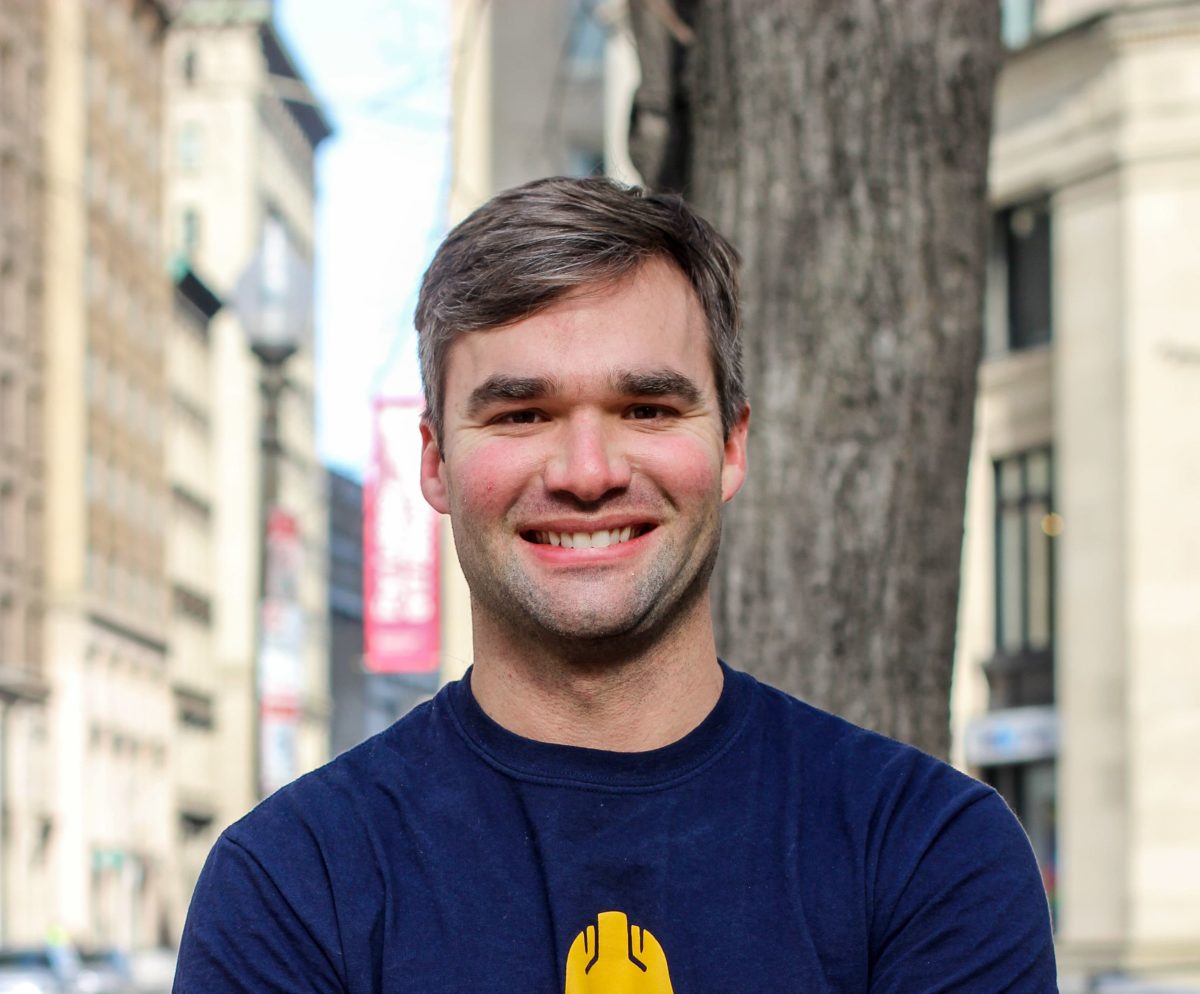Don’t shy away from constructive conflict or debate. It’s important to be transparent, and many times the best ideas are born in the midst of debates and disagreement.
Peter Maglathlin is the Co-Founder & CFO at Trade Hounds, a Boston startup whose mobile app connects construction workers all over the United States, providing them a digital platform to share their experiences and showcase their work.
Trade Hounds empowers construction workers across the skilled trades – carpenters, plumbers, electricians, welders, etc. – by connecting them with each other to discuss their unique construction experiences. Members can weigh in on projects, share stories, get advice, and proudly showcase work photos, no matter their location.
Before Trade Hounds, Maglathlin co-founded Catalant (formerly HourlyNerd), which provides global enterprises with software solutions to access business consultant expertise on demand. Catalant received funding from Mark Cuban as well as several venture capital firms, and today employs nearly 200 people.
Peter spent the early part of his career in finance – he was Vice President of Business Development at Highbridge Capital Management, and prior to that an analyst at UBS Investment Bank.
Peter is a graduate of Harvard College and Harvard Business School, and he lives with his wife Caitlin in Boston.
Where did the idea for your company come from?
The idea originated from my business partner, David Broomhead. David grew up in a construction family in Australia and realized that construction workers simply didn’t have access to an online, professional community in the same way so many other workers do.
What does your typical day look like and how do you make it productive?
The first thing I do in the morning is grab a cup of coffee. Soon after that, I check our data systems to understand what happened yesterday / overnight. Trade Hounds is a consumer-oriented company, so we’re generating new data on a minute-by-minute basis. Checking the data first thing enables me to be up to speed and have the right frame of reference entering the day’s meetings and decision points. From there, my day usually consists of a combination of meetings with co-workers and calls with customers and/or investors.
How do you bring ideas to life?
Challenge them. No idea is sacred, and when our team gets in a room, I think it’s important to play devil’s advocate to see if they stand up in a constructive debate.
What’s one trend that excites you?
Construction-related technology. There is a ton of innovation occurring in the construction industry these days related to productivity, safety, communication and jobs.
What is one habit of yours that makes you more productive as an entrepreneur?
Map everything I do to our company’s goals and values. Productivity and time management is particularly important for startups who tend to have less capital, a shorter runway and therefore a smaller margin for error. Therefore, I try to challenge myself and my team to make sure literally everything we’re doing maps to our broader company goals and initiatives.
What advice would you give your younger self?
Don’t shy away from constructive conflict or debate. It’s important to be transparent, and many times the best ideas are born in the midst of debates and disagreement.
Tell us something that’s true that almost nobody agrees with you on.
Customer surveys are useless. The only way to truly understand your customer’s preferences is to observe them using your product in person and ask them contextual questions.
As an entrepreneur, what is the one thing you do over and over and recommend everyone else do?
Take action since you don’t have the luxury not to. Sure, discussion and deliberation are important to inform decisions, but too often I see startups and entrepreneurs suffering from analysis paralysis when they could be acting on the information they have. The information will always be imperfect, and it’s far better to fail fast and learn than to fail slowly.
What is one strategy that has helped you grow your business?
Empowering people to make decisions. If you’re hiring the right people, and training them appropriately, then you need to give them the ability to make their own decisions and assume some level of risk themselves.
What is one failure you had as an entrepreneur, and how did you overcome it?
Hiring and firing is one of the most critical but also one of the most difficult skills for an entrepreneur to develop. This might sound a bit cutthroat, but when an employee isn’t working out, and there isn’t a clear path to it working, then it’s best for both parties to part ways. A disgruntled or unproductive employee has a detrimental effect on the entire team. I’ve learned that the hard way.
What is one business idea that you’re willing to give away to our readers?
Banking for the cannabis industry – someone is going to figure it out and make a lot of money.
What is the best $100 you recently spent? What and why?
A pair of Lem’s boots. Inexpensive and incredibly comfortable.
What is one piece of software or a web service that helps you be productive?
Slack – great team collaboration tool for startups.
What is the one book that you recommend our community should read and why?
The Everything Store, which is the story of Amazon and Jeff Bezos. Incredibly inspiring and also a reminder that the journey to building a successful company is never perfectly smooth.
What is your favorite quote?
It’s not whether you get knocked down, it’s whether you get back up. -Vince Lombardi
Key Learnings:
- Goals-oriented action is the lifeblood of business
- Don’t shy away from constructive conflict
- Hire great people and empower them
Connect:
www.tradehounds.com
@petermaglathlin
Carlyn runs the day-to-day publishing operation here at ideamensch and interacts with our awesome customers and entrepreneurs. She is likely editing this with a cat on her lap.

